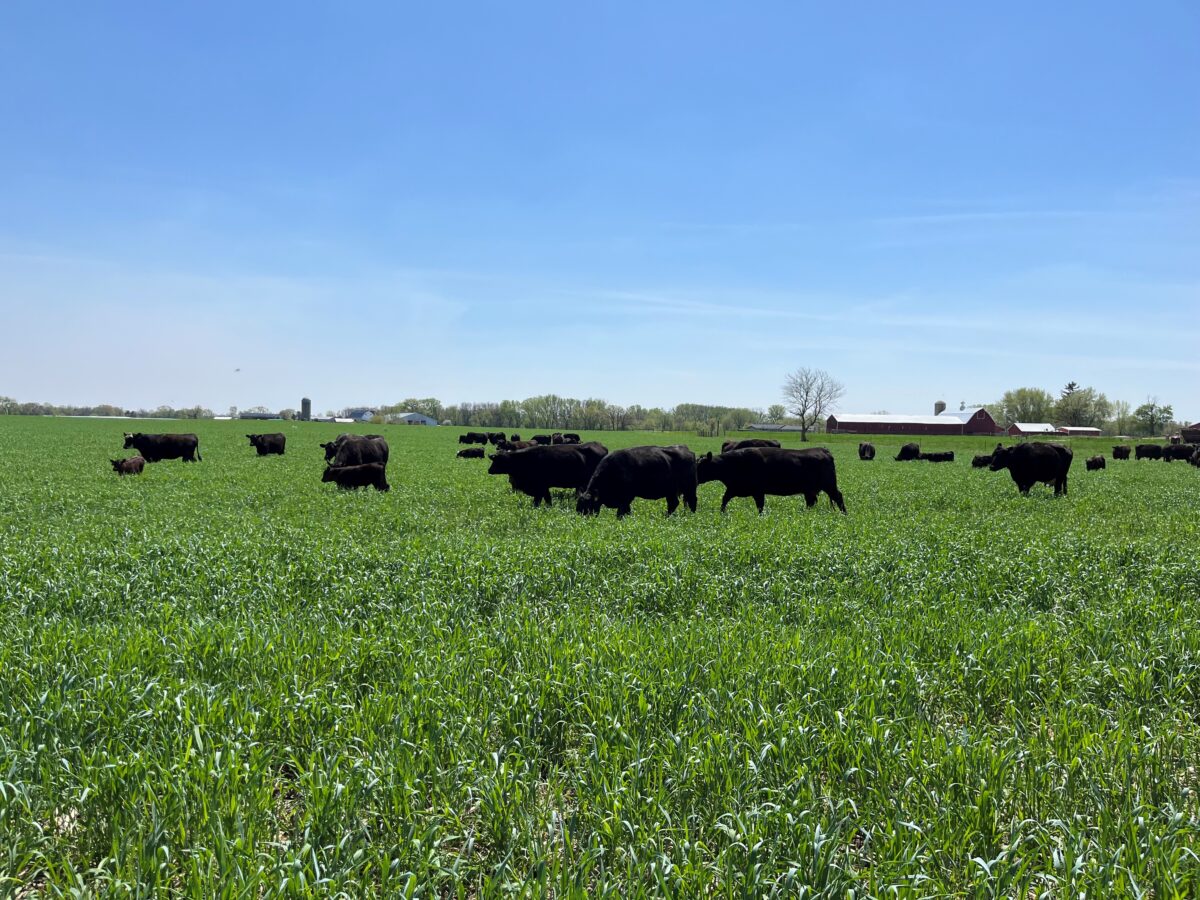Farmers are often reluctant to risk investments of time or money to adopt research-based conservation practices on their farms. In southern Wisconsin, a creative approach to fostering informal, farmer-led learning opportunities has been key to encouraging farmers to adopt cost-cutting grazing and cover cropping practices that successfully decrease soil erosion and waterway contamination.

Dane County Conservation Specialist Marie Raboin recognized that farmers who feel inspired and informed by other farmers are more likely to adopt new practices. With support from a North Central SARE Partnership grant, Raboin organized and compensated conservation-minded farmers to share their experiences with other producers. Mentor farmers led field days and one-on-one consultations to help their peers explore grazing cover crops to reduce livestock feed costs.
This farmer-led method significantly enhanced local livestock production sustainability—environmentally, economically and socially—by fostering a culture of innovation. As a result, farmers increased the use of cover cropping practices which reduced feed costs, soil erosion and waterway pollution.
A recent post-project evaluation of SARE projects awarded between 2016 and 2019 found that fostering innovation through farmer-to-farmer learning boosted the project’s outcomes.
“Science matters in promoting sustainable agriculture, but it is just one small piece of the process,” said Raboin. “Community [support] affects more change on the landscape than research out of the best land grant university.”
Visit https://www.sare.org/sare-impacts-ONC19-063 for more information on this project’s impact.
Building Sustainable Relationships Around the Use of Grazing Cover Crops is part of a series produced by Insight for Action as part of a post-project evaluation of SARE's regional grant programs. For more information visit https://www.sare.org/sare-impacts.
For details on grants and resources available from SARE, visit www.sare.org.